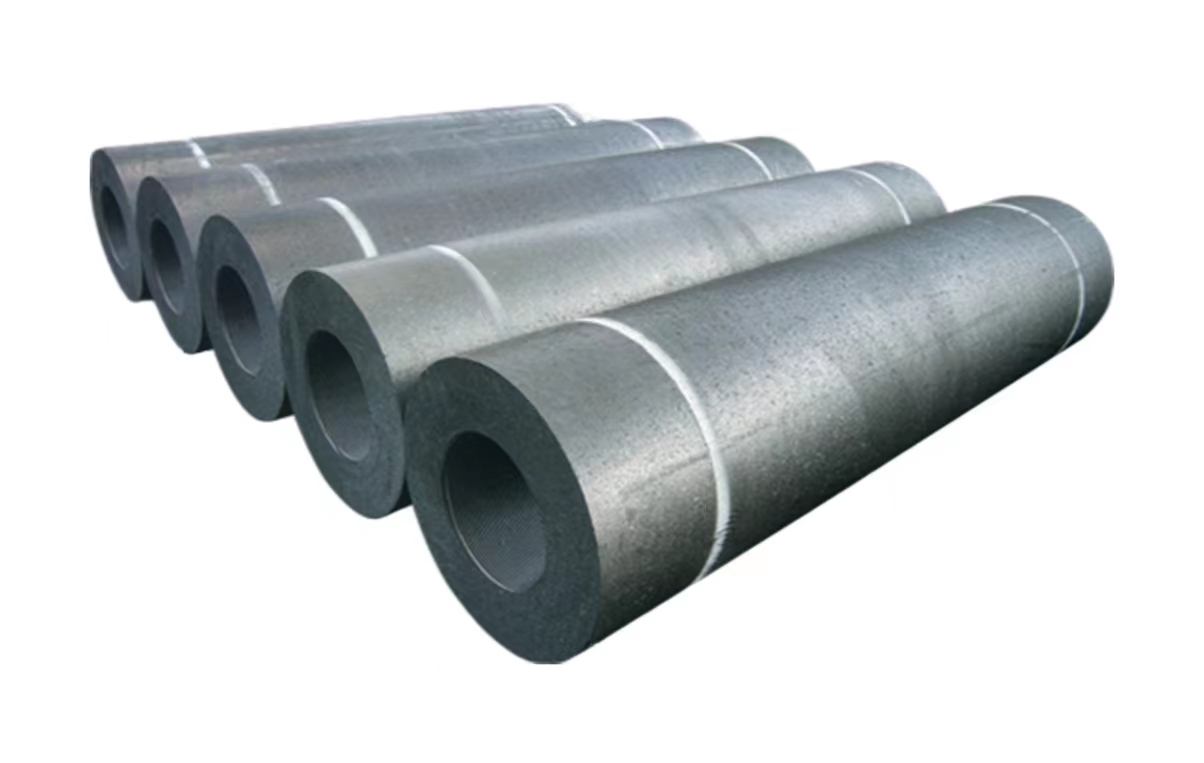Graphite electrode composition is mainly composed of carbon. Graphite electrodes are vital components in electric arc furnace steelmaking. The quality of the electrodes used directly affects the efficiency and cost of steel production. Therefore, it is essential coessential the composition of these electrodes and how they are made.
Índice
AlternarGraphite electrode chemical composition is mainly composed of carbon.
Graphite electrodes are made of graphite, a material highly composed of carbon, a non-metallic element. So graphite is an ideal choice for producing graphite electrodes due to its low electrical resistivity, chemical inertness, and ability to withstand extreme temperatures. The production including, baking, graphitization, and machining processes developed over many years have been improved. We can produce them with stable quality and ideal performance.
The graphite used in making graphite electrodes typically contains 97% to 99% carbon. Manufacturers often add trace elements depending on the application requirements to improve conductivity or other properties.
Graphite electrodes are used in electric arc furnaces (EAFs) to create the high temperatures needed to melt metals.
Graphite electrodes are some of the most critical electric arc furnace (EAF) components. They are a good conductor and create intense heat, reaching 3,000 degrees Celsius and melting the metal. They provide a vital path for high-intensity current, helping to increase the power input while uniformly redistributing heat to the scrap material.
When these electrodes deteriorate from oxidation, thermal shock cracks, and foreign particulates, these crucial pieces of equipment must receive regular maintenance and replacements so production can continue smoothly.
EAFs recycle scrap metal into new products, such as steel beams and cars.
Electric arc furnaces (EAFs) offer an efficient and effective method for recycling scrap metal into new products, such as steel beams and cars. The eletrodo de grafite composition of an EAF allows for much higher temperatures to be reached than a traditional furnace. They are then enabling faster melting of scrap metal.
Then limits the energy consumption required during the recycling process, helping make it a greener option than before. Furthermore, scrap metal can still maintain quality when recycled in an EAF. So EAFs are ideal for companies producing high-quality steel products while minimizing environmental impact.
Graphite electrode chemical composition affects the electrical conductivity and resistance of the electrode and the amount of heat it can generate.
Graphite electrodes have been widely used for various applications where electrical conductivity and the heat we must generate are paramount. To perform optimally, we must carefully consider the chemical composition of them. The chosen ingredients depend on thermal conductivity, electrical resistance, and heat generation. For example, graphite electrodes need high carbon content to ensure maximum performance.
The manufacturers should keep impurities to a minimum to avoid interfering with their performance. Many fabricantes append additives such as boron iron to further increase their products’ overall performance. When choosing graphite electrodes, you must consider their composition and how they will affect their application.
Different grades of graphite electrodes are available, depending on the application.
Graphite electrodes are available in a variety of compositions to suit a wide range of applications. For example, they are made with low ash materials or graphitized at higher temperatures and are typically used for electric arc furnace steel production. In contrast, graphite eletrodos with a high binder content are designed explicitly for ladle furnaces.
We tailor the graphite composition of each graphite electrode type to meet a specific application’s performance requirements and operating conditions. Selecting a graphite electrode with optimal properties and granulometry can boost productivity and reduce maintenance and downtime costs.
Mais recursos:
Processo de fabricação de eletrodos de grafite- Fonte: JINSUN
Fabricação de aço em forno elétrico a arco – Source: WIKIPEDIA
Refino- Fonte: BRITANNICA

